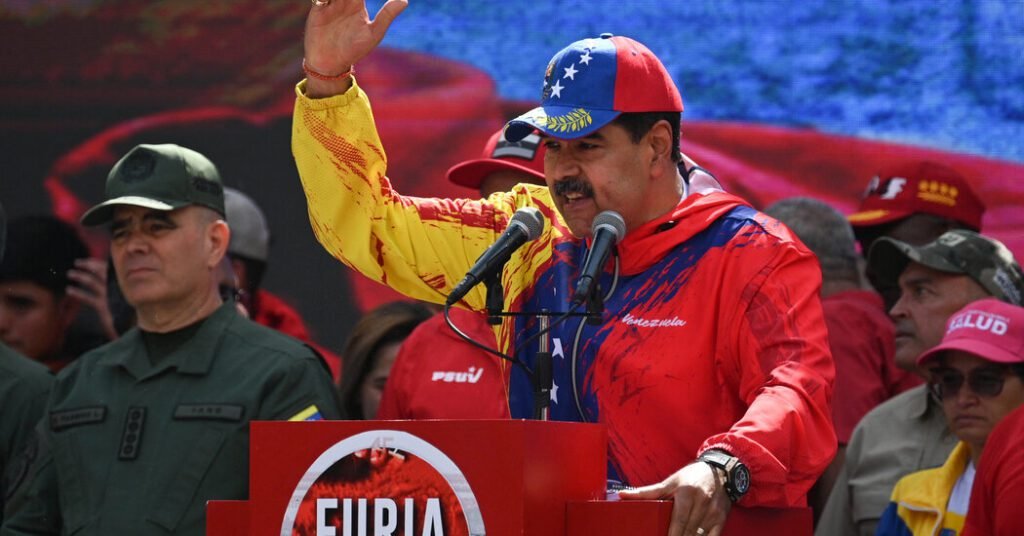Venezuelan officials announced Tuesday that national elections that many hoped would chart a path to democracy will be held on July 28.
However, the decision on the date comes a month after the country’s highest court banned the main opposition candidate from the ballot, leading many to question how free and fair the summer elections would be.
However, the announcement by the government of President Nicolas Maduro is at least a partial fulfillment of a pledge to the United States to hold elections this year in exchange for the lifting of crippling economic sanctions.
In October, Mr Maduro signed a deal with the country’s opposition and agreed to work for a free and fair presidential vote. In the deal, Mr Maduro said he would hold elections before the end of this year and the United States in turn lifted some sanctions as a goodwill gesture.
But a few days later, Mr. Maduro watched as opposition candidate Maria Corina Machado won more than 90 percent of the vote in primary elections organized by the opposition and without government participation. The decisive results highlighted her popularity and raised the prospect that she could beat him in a general election.
Since then, Mr. Maduro’s government has declared Ms. Machado ineligible to run, due to alleged financial irregularities that occurred while she was a national lawmaker, and has arrested several members of her campaign. Men with motorbikes attacked supporters at her events.
The temporary easing of US oil and gas sanctions is set to expire on April 18, and the Biden administration could choose to reimpose them.
Tuesday’s announcement “makes it clear that Venezuela will not have free and fair elections this year” and “all but guarantees that the Biden administration will lift sanctions,” said Geoff Ramsey, senior fellow for Venezuela at the Atlantic Council, a research. foundation based in Washington.
Chavismo, the socialist-inspired movement led by Mr. Maduro, has controlled Venezuela for 25 years. Mr Maduro came to power in 2013 after the death of his predecessor, President Hugo Chavez, and remained in power after a 2018 election, the results of which were widely seen as rigged. This election was followed by a period of international isolation, during which many countries followed the lead of the United States in refusing to do business with Venezuela.
The date of the upcoming election, July 28, is Mr. Chávez’s birthday. The announcement came on the date of his death, March 5.
The choice is likely intended to leverage Mr. Chavez’s legacy to bolster the electability of Mr. Maduro, who is deeply unpopular, according to Phil Gunson, an analyst at the International Crisis Group, based in the country’s capital, Caracas.
Opposition candidates have until March 25 to register their participation. It is unclear whether Ms. Machado’s party will try to hold on to her candidacy or try to unite around another candidate.
A split in the opposition will likely be a boon for Mr Maduro’s candidacy.
“The combination of a divided opposition, high abstention and weak opponents gives him the best chance of winning without having to commit fraud,” Mr Gunson said.

